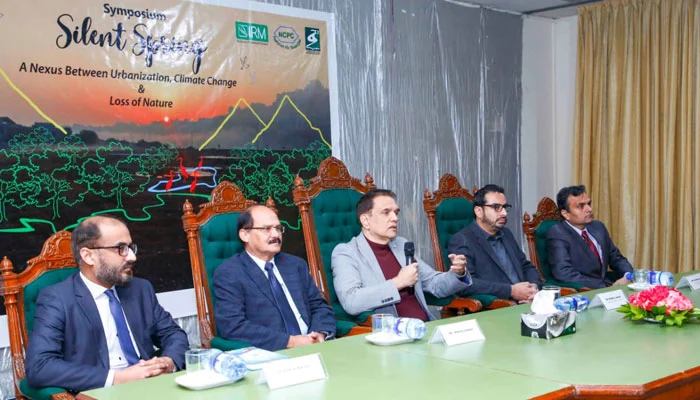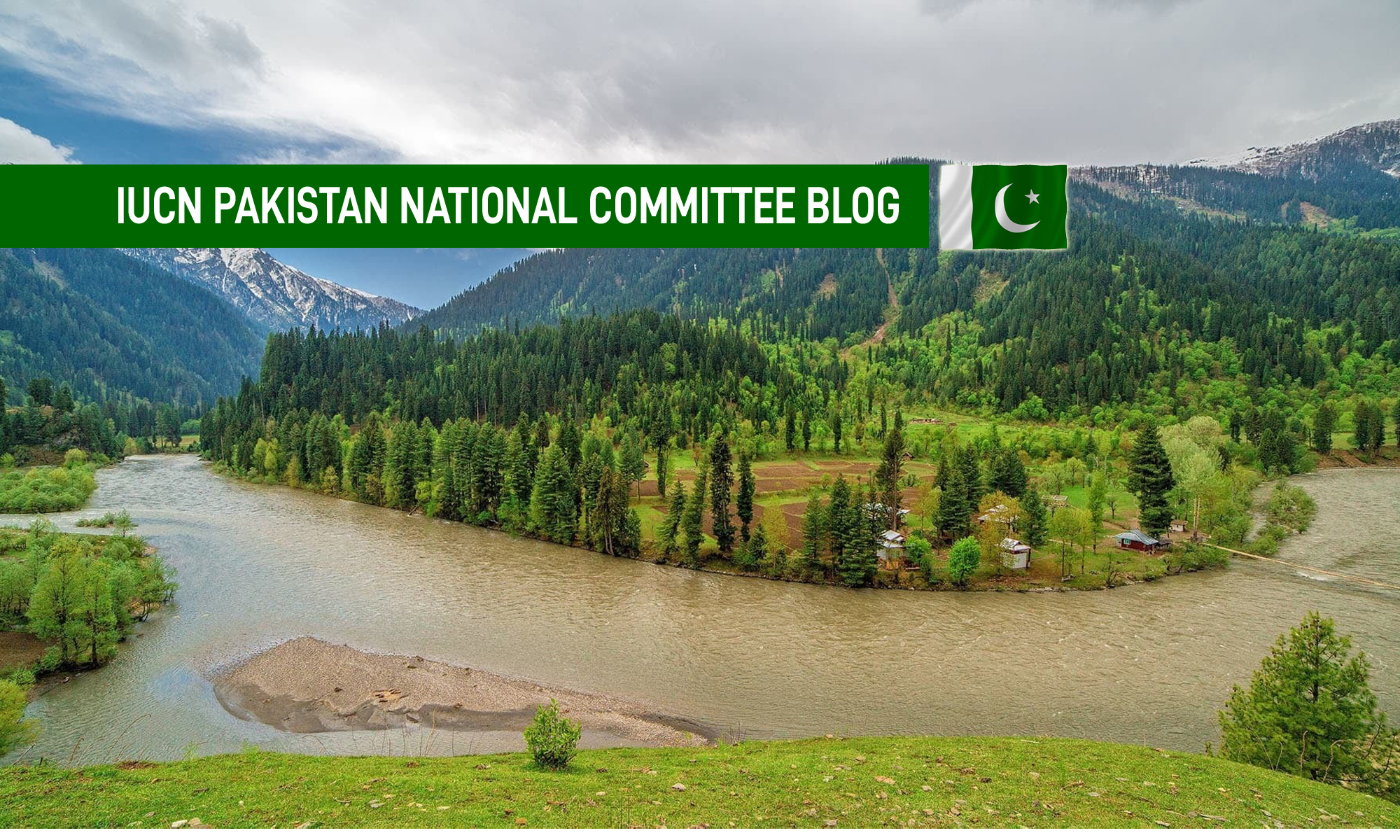Rawalpindi: The Institute of Rural Management (IRM), in collaboration with the National Cleaner Production Centre (NCPC) and the Department of Environmental Sciences at Fatima Jinnah Women University, hosted a symposium titled ‘Silent Spring: A Nexus between Urbanisation, Climate Change, and Loss of Nature.’

This image shows A Panel of five interacting with the audience at the event of collaboration between the Institute of Rural Management (IRM), and National Cleaner Production Center (NCPC), and the Department of Environmental Sciences at Fatima Jinnah Women University, Rawalpindi on February 26, 2024. — APP
The event convened a diverse audience, including government officials, academics, professionals, students, and community members, all eager to explore the implications of urbanisation and climate change on the dwindling splendour of springs, particularly in major cities like Islamabad.
Esteemed panellists, such as Dr. Roomi S. Hayat (CEO, IRM & Chairperson IUCN-PNC), Irshad Ramay (Coordinator, NCPC), Fawad Hayat (DGM & Head of Climate Change, NDRMF), Dr. Imran Saqib Khalid (Director Governance and Policy & Program Lead Australia-Pakistan Water Security Initiative, WWF Pakistan), and Dr. Khalid Waleed (Climate Lead, SDPI), engaged in insightful discussions, shedding light on the urgent need for policy development, waste management strategies, nature-based solutions, and grassroots initiatives to mitigate the adverse effects of urban expansion and environmental degradation.
The symposium provided a critical platform for comprehensive analysis and discourse on the complex interplay between urbanisation, climate change, and the alarming loss of natural ecosystems, particularly during the spring season.
Participants gained valuable perspectives on the profound implications of these interconnected challenges and emphasised the importance of integrating sustainable practices into urban development and fostering community-driven initiatives to restore ecological balance.
Beyond its educational value, the symposium facilitated networking opportunities and knowledge sharing among stakeholders, fostering collaboration and synergy in addressing shared environmental concerns.
The event received widespread acclaim, with attendees commending the organisers for facilitating a timely and impactful dialogue on critical environmental issues. The Institute of Rural Management (IRM) reaffirms its commitment to promoting advocacy and playing its role in mitigating climate change and ensuring environmental well-being.
The symposium marked a significant step forward in galvanising collective efforts toward fostering resilience and sustainability in the face of urbanisation and climate change. It is anticipated that the insights gleaned from the symposium will inspire informed policymaking and grassroots actions to address the climate crisis in Pakistan and beyond.









